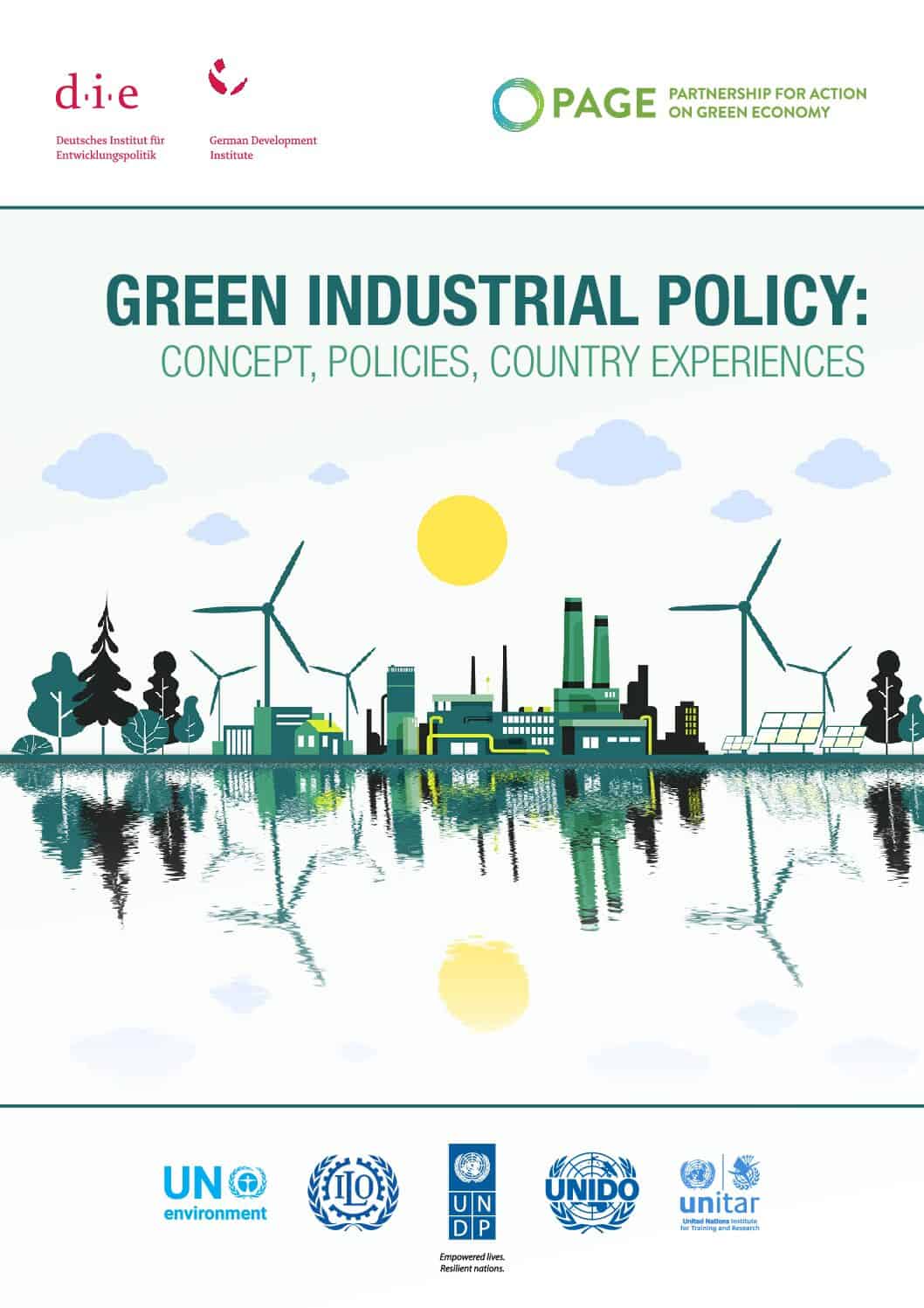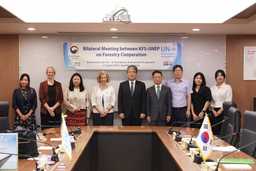Green industrial policy is essential for a government’s strategy to enhance its competitiveness in the global green economy while safeguarding environmental resources. The United Nations Industrial Development Organization (UNIDO) is the specialized agency of the United Nations that promotes industrial development for poverty reduction, inclusive globalization and environmental sustainability. Under the PAGE programme, UNIDO’ activities focus on engagement and policy coordination in the industrial sector. The organisation provides guidance to policymakers and practitioners on green industrial transformation and provide an up-to-date overview of the debate on green industrial policy.
The greening of industry could help economies striving for a more sustainable pathway of growth, by undertaking green public investments and implementing public policy initiatives that encourage environmentally responsible private investments. It includes policymaking, improved industrial production processes and resource-efficient productivity.
UNIDO’s activities under PAGE are focused on industrial policy advice to developing countries and implementation through industry involvement, industry-related training, and the formation of public-private partnerships.
As an example, to inform policymakers, researchers and practitioners about the concept of Green Industrial Policies and the instruments available, the Partnership for Action on Green Economy (PAGE) has published reports with the support of UNIDO – “Green Industrial Policy and Trade: A Toolbox”, “Practitioner’s Guide to Strategic Green Industrial Policy”, and “Green Industrial Policy: Concept, Policies, Country Experiences”.
Christophe Yvetot, UNIDO Representative to the European Union, tells us more about the green transition in the industry sector and the collaboration between PAGE and UNIDO.















